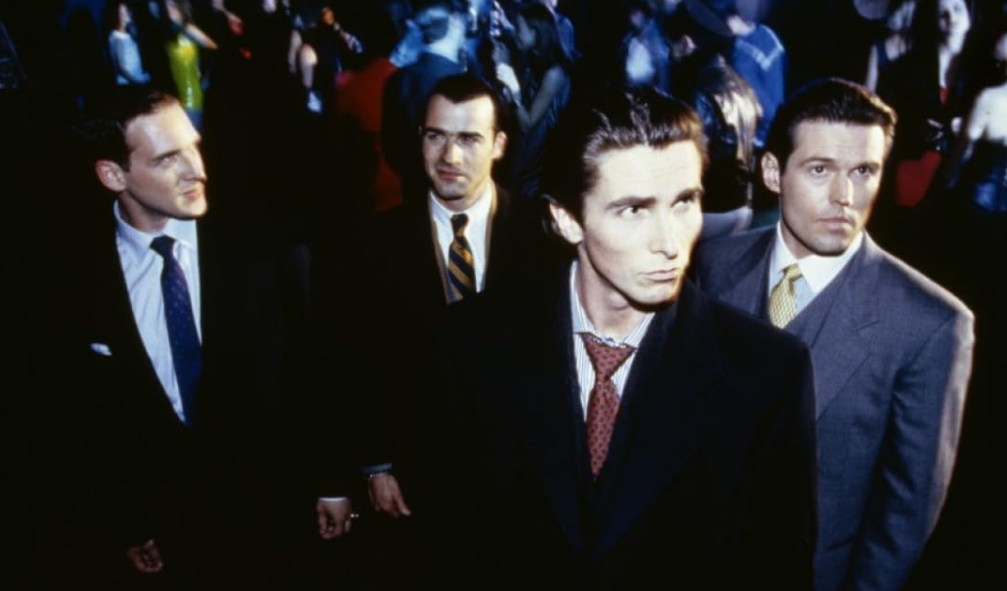
Being one of those very real movies which would still be there in your head when the credits roll, American Psycho, directed by Mary Harron and based on a novel by Bret Easton Ellis, is a true master stroke. And it is of course to be credited with a career-defining performance by Christian Bale as the film can be termed as dark satire replete with horror, comedy, and piercing critiques at 1980s consumerism and shallowness. It is very unsettling yet wickedly entertaining, therefore culminating into this unique cinematic experience.
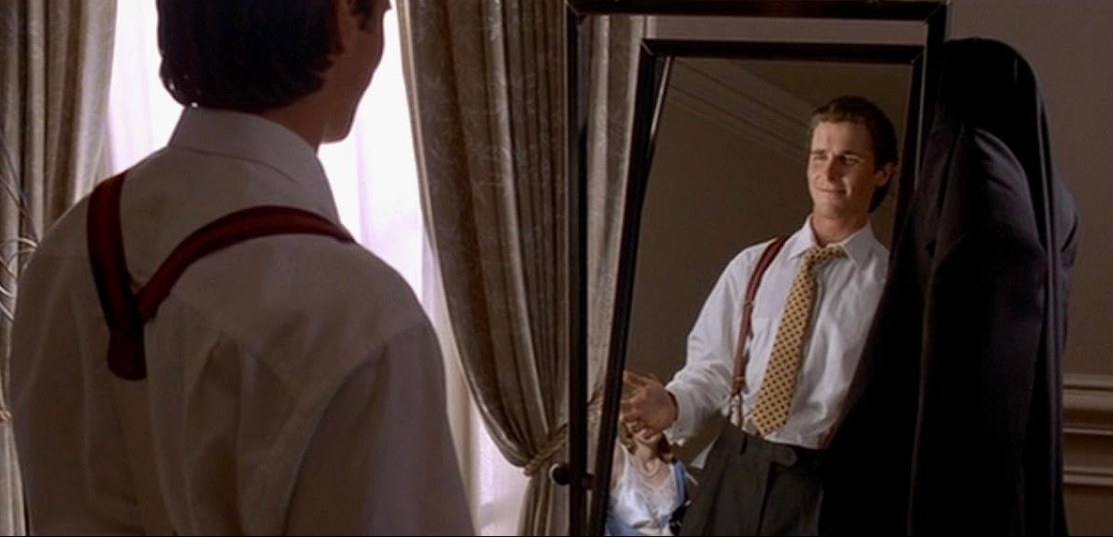
The story takes place in Manhattan in the late 1980s, the epitome of excess and materialism. That setting is crucial to understanding Patrick Bateman, a wealthy investment banker whose existence is defined by appearances. Bateman is an embodiment of this era’s excesses in relation to wealth, status, and perfection, and below his polished façade lies a violent, psychopathic mind.

He is finicky about everything, from his skincare routine to his designer wardrobe and obsession with reservations at the trendiest restaurants. The minute attention to detail speaks volumes of his vacuousness and detachment from reality. This is a man who cares more about the font on his business card than he does about the lives of the people around him.
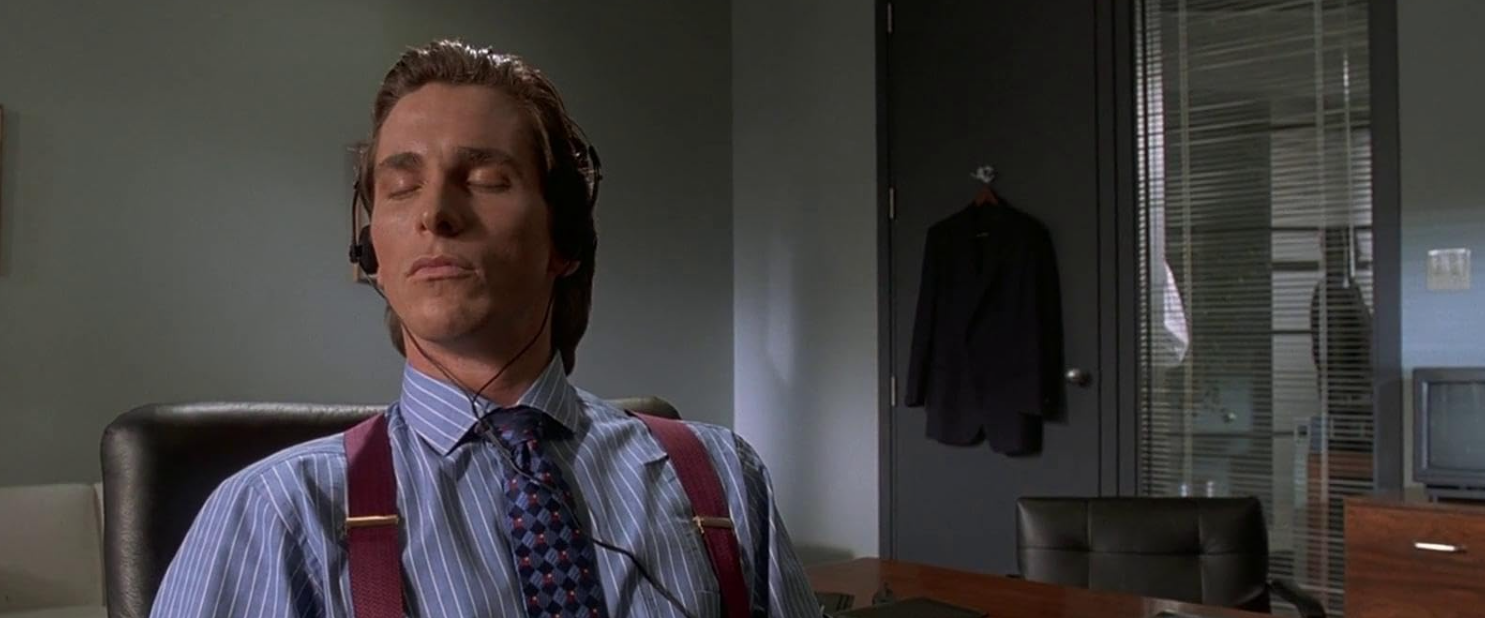
The performance by Christian Bale in Patrick Bateman is phenomenal. He exactly represents the two contrasting sides of Bateman: a charming, suave professional and a deranged murderer. Chilling is the moment when he easily switches between the two roles and the viewer can’t tell at times whether they should laugh or cringe at him or just shiver at his character.
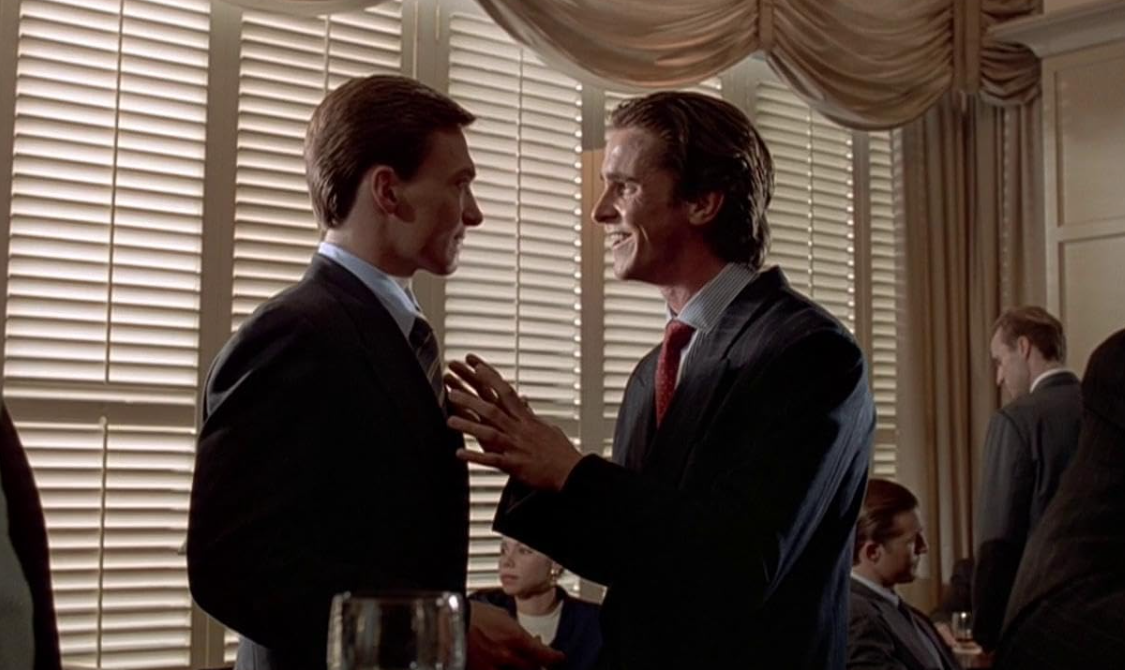
Perhaps the most iconic scene—and a testament to Bale’s performance—is when Bateman delivers a monologue about Huey Lewis and the News before brutally murdering a colleague. The juxtaposition of his enthusiasm for pop music with his horrifying actions is both absurd and terrifying, encapsulating the film’s unique tone.
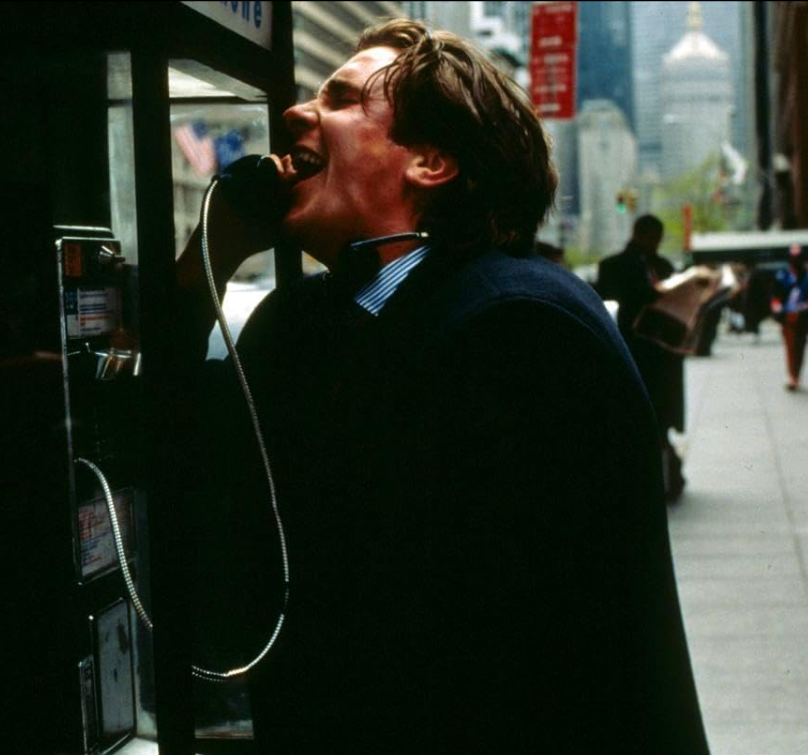
At its core, American Psycho would be an essay on scathing satire of the yuppie culture of the 1980s. The film is centered around the ideas of identity, consumerism, and moral decay. Bateman and his peers become so obsessed with the pursuit of status and material goods that they lose their human nature. Interchangeable, in fact, as shown by the running gag whereby characters mistake one another’s identities.
This lack of individuality is reflected in the existential crisis of Bateman. He may be propitiously wealthy and privileged, but he feels hollow and unconnected. His violent outbursts are a dysfunctional attempt to provide himself with meaning and a sense of somethingness in a world that’s just as hollow as he is.
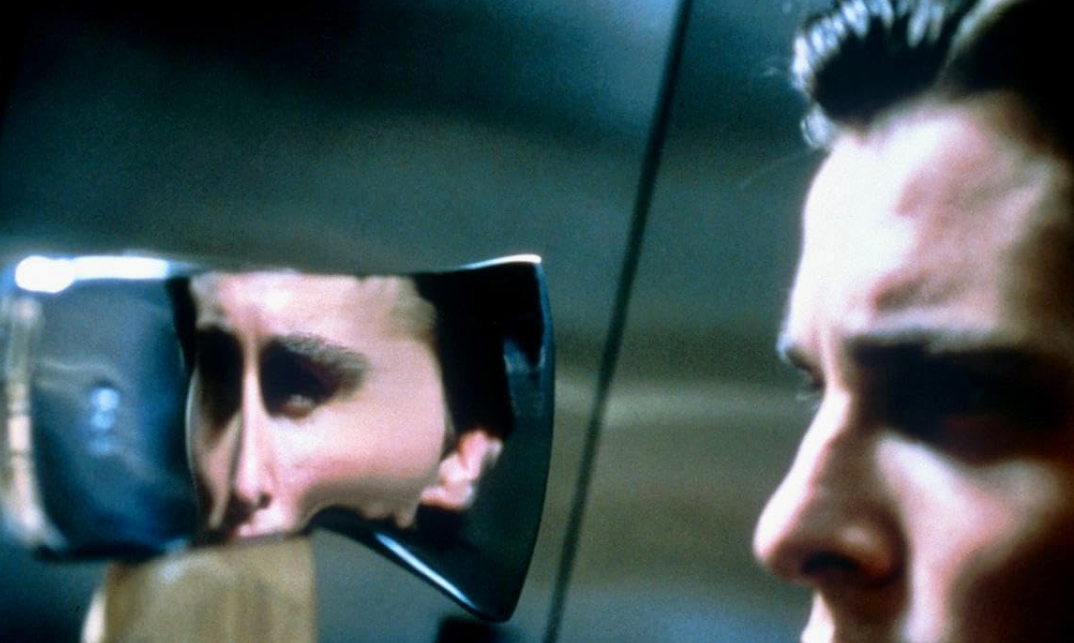
The second controversy over American Psycho is the ambiguity of whether Bateman is a killer or just a guy who holds fantasies and performs acts of violence. Neither does the film clarify where the line between reality and fantasy lies. Thus, it leaves it up to the viewer to discern what he is watching. It makes the entire story quite melodramatic, and the viewer is left to re-evaluate how they see things.
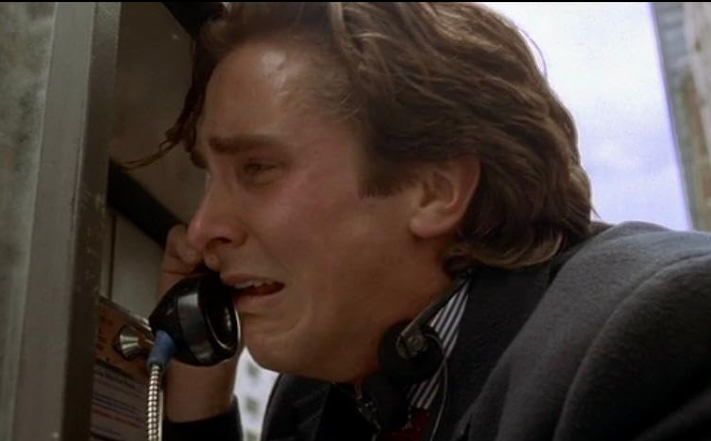
For instance, there is the infamous confessional scene which Bateman makes via phone. It’s eerie and inexplicable as well. This frantic confession appears true only to later events that contradict that assumption. This is also akin to Bateman’s derailing psychology to challenge the spectator to engage with the unreliability of his viewpoint.
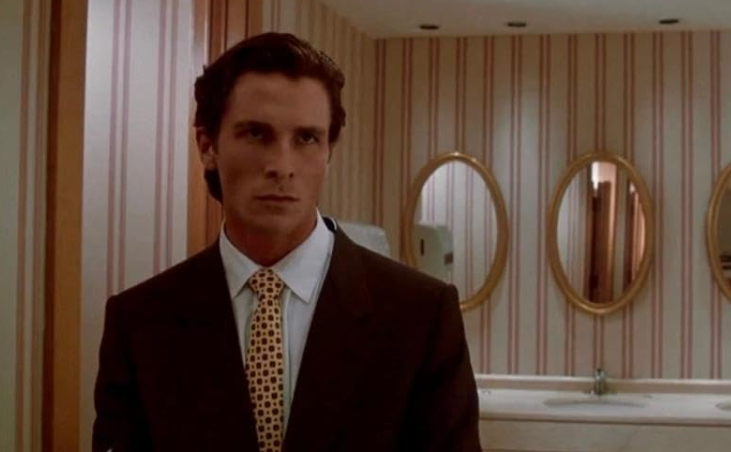
Mary Harron’s direction is sharp and purposeful. The look of the film-clean, glossy, and meticulously styled-is a reflection of Bateman’s obsession with perfection. Andrzej Sekuła’s cinematography complements this by giving crisp visuals and stark contrast between the polished surface of the film and its dark undercurrents.
Soundtrack plays a very important role in setting the tone. Pop hits of the 1980s are used ironically by including tracks of Phil Collins and Whitney Houston, which show how Bateman is disconnected from reality. The upbeat music juxtaposes grim events on screen, making the film sadder and satirical.
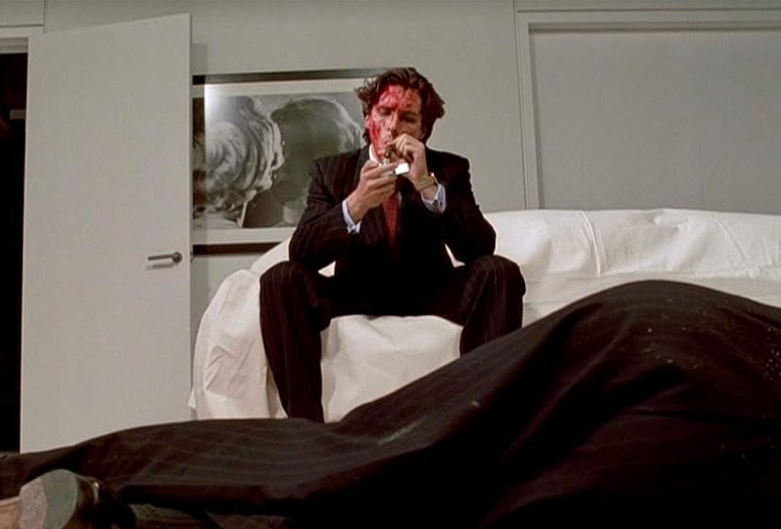
Although American Psycho is undoubtedly dark, it is also unexpectedly funny. The humor is usually the result of the absurdity of Bateman and the absurdity of his world. His music monologues, his obsessive comparisons of business cards, and his disdain for anything “unsophisticated” are so over-the-top that they become comedic.
This blend of horror and humor is one of the film’s greatest strengths. It keeps the audience on edge, unsure whether to laugh or recoil. This tonal balance is difficult to achieve, but Harron and Bale pull it off masterfully.
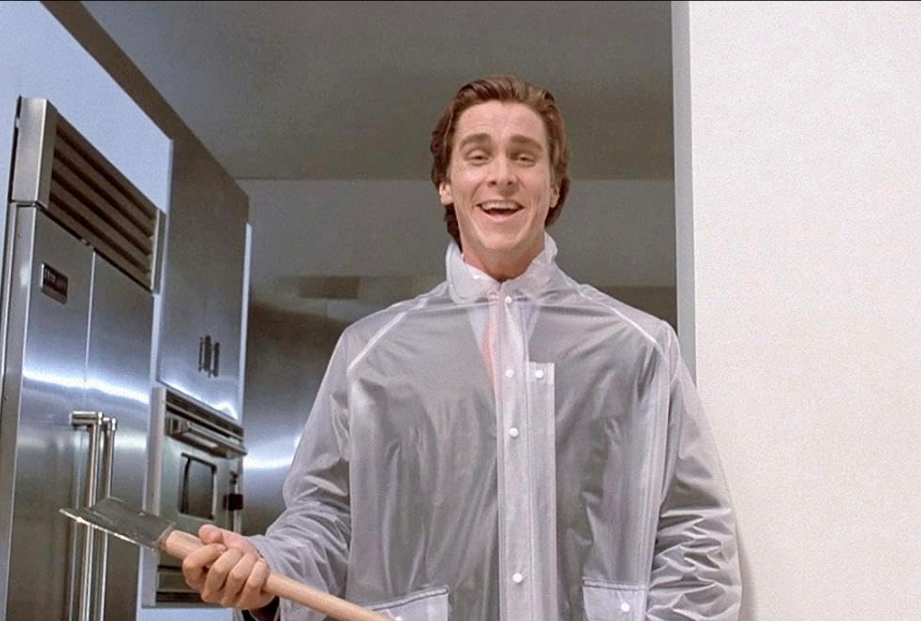
Since its release, American Psycho has been a cultural phenomenon. Pop culture has made numerous references to the movie in memes, parodies, and has brought forth discussions regarding its themes and meanings. It continues to reflect the comment it makes about consumerism and identity as it pertains to newer generations of viewers.

Christian Bale has turned out to be an iconic figure with his performance in the film, which will always make him one of the most versatile actors of his generation. The satire and horror mix of the film has influenced many filmmakers, ensuring its place in the modern classics.
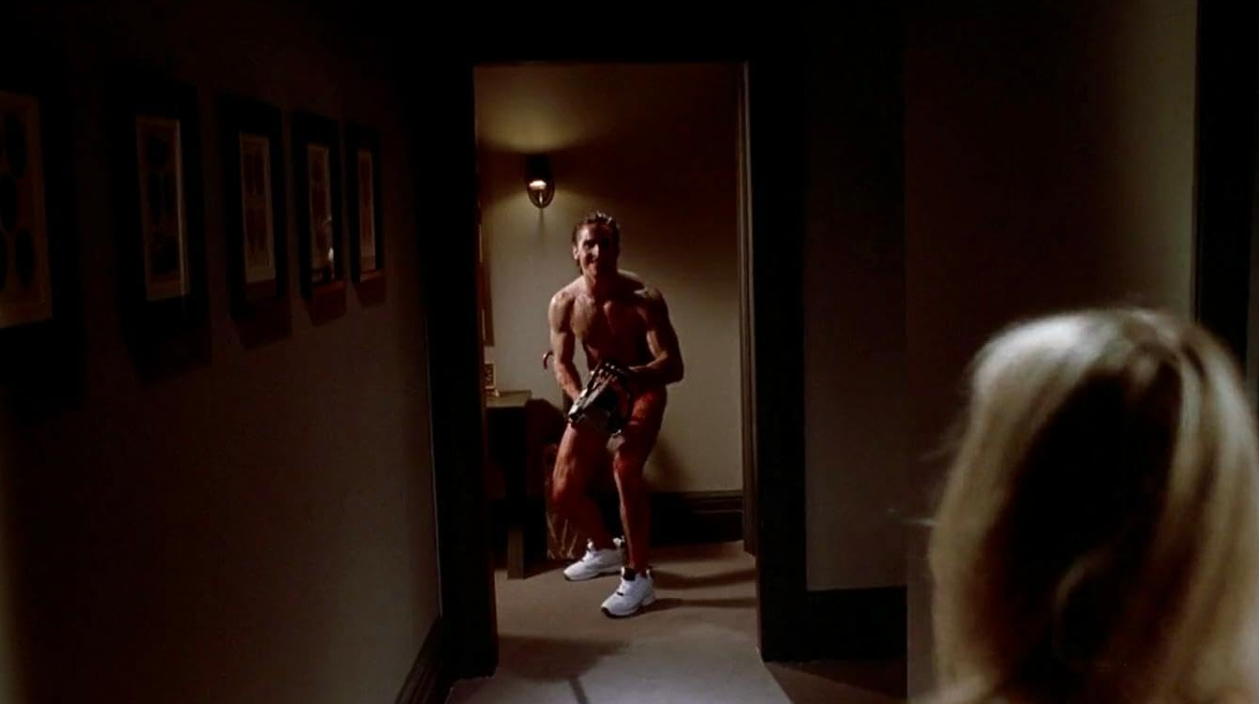
American Psycho cannot be said to be a film for all good tastes. Graphic violence and disturbing themes don’t exactly sit well with the sitting. It can be too unpalatable for some, ambiguous and troubling for others, satirical in presentation for more. But for one willing to venture into the intricacies of its experience, there’s much to it.
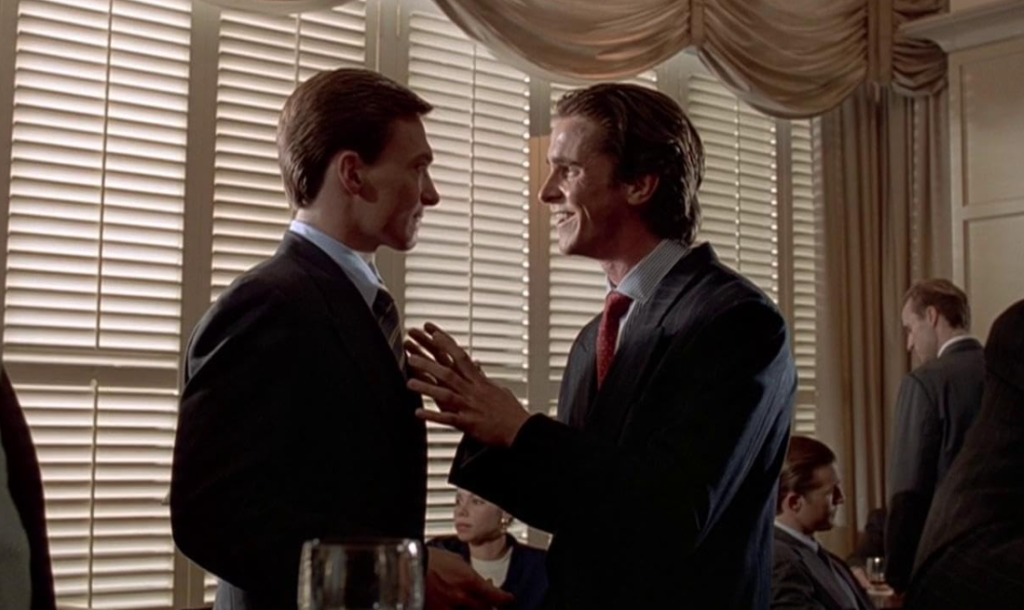
American Psycho is a film that cannot be easily pigeonholed. It is a horror movie and, at the same time, a black comedy and a social critique all put in one. The movie has stunning performances by Christian Bale, sharp direction by Mary Harron, and an overall incisive satire.

Be it as an anti-capitalist diatribe, the exploration of a fractured psyche, or merely an intensely darkly entertaining movie, American Psycho is one of those movies that thrusts attention to its own way. It’s provocative, disturbing, and above all, unforgettable. So if you haven’t watched it yet, then prepare yourself for something more unique from other cinematic experiences.